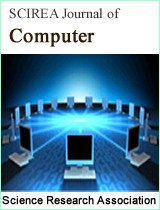The Remaining 23 Valid Aristotelian Syllogisms can be Deduced only from the Syllogism IAI-3
DOI: 10.54647/computer52326 91 Downloads 169220 Views
Author(s)
Abstract
Syllogism reasoning is a common and important form of reasoning in natural language and logic. This paper shows that the remaining 23 valid syllogisms can be deduced merely from the syllogism IAI-3 by making the best of propositional logic and generalized quantifier theory, so as to achieve the goal of deeply discussing the reducible relations between the syllogism IAI-3 and the other syllogisms. More specifically, on the basis of formalizing syllogisms, this paper makes full of rules of deduction in classical propositional logic, the definitions of outer and inner negative quantifiers of Aristotelian quantifiers, and the symmetry of Aristotelian quantifiers no and some in generalized quantifier theory, and then establishes a concise formalized axiom system for Aristotelian syllogistic logic. This innovative research not only shows that formalized logic has the characteristics of structuralism, but also provides a concise and general mathematical paradigm for studying other syllogistic logics, and also provides theoretical support for knowledge and information processing in artificial intelligence and computer science.
Keywords
Aristotelian syllogisms; Aristotelian quantifiers; reducible relations; negative quantifiers; symmetry of quantifiers
Cite this paper
Cheng Zhang,
The Remaining 23 Valid Aristotelian Syllogisms can be Deduced only from the Syllogism IAI-3
, SCIREA Journal of Computer.
Volume 7, Issue 5, October 2022 | PP. 85-95.
10.54647/computer52326
References
| [ 1 ] | N. Chater and M. Oaksford, the probability Heuristics model of syllogistic reasoning, Cognitive Psychology, Vol. 38, 1999, pp.191-258. |
| [ 2 ] | G. Patzig, Aristotle's Theory of the Syllogism, J. Barnes (trans.), Dordrecht: D. Reidel, 1969. |
| [ 3 ] | L. S. Moss, Syllogistic logics with verbs, Journal of Logic and Computation, Vol. 20, No. 4, 2010, pp.947-967. |
| [ 4 ] | P. Murinová P and V. Novák, A formal theory of generalized intermediate syllogisms, Fuzzy Sets and Systems, Vol.186, 2012, pp. 47-80. |
| [ 5 ] | J. Endrullis, and L. S. Moss, Syllogistic logic with ‘Most’, in V. de Paiva et al. (eds. ), Logic, Language, Information, and Computation, 2015, pp.124-139. |
| [ 6 ] | J. Łukasiewicz, Aristotle’s Syllogistic from the Standpoint of Modern Formal Logic, Clarendon Press, Oxford, 1951. |
| [ 7 ] | J. N. Martin, Aristotle’s natural deduction reconsidered, History and Philosophy of Logic, Vol. 18, No.1 1997, pp.1-15. |
| [ 8 ] | L. S. Moss, Completeness theorems for syllogistic fragments, in F. Hamm and S. Kepser (eds.), Logics for Linguistic Structures, Mouton de Gruyter, Berlin, 2008, pp.143–173. |
| [ 9 ] | J. van Benthem, Questions about quantifiers, Journal of Symbol Logic, Vol. 49, No.2, 1984, pp.443-466. |
| [ 10 ] | D. Westerståhl, Aristotelian syllogisms and generalized quantifiers, Studia Logica, Vol. XLVII, No.4, 1989, pp.577-585. |
| [ 11 ] | F. Johnson, Models for modal syllogisms, Notre Dame Journal of Formal Logic, 1989, Vol.30, pp.271-284. |
| [ 12 ] | F. Johnson, Aristotle’s modal syllogisms, in: D. M. Gabbay and J. Woods (eds.), Handbook of the History of Logic, Amsterdam: Elsevier, Vol. I, 2004, pp.247-338. |
| [ 13 ] | N. Ivanov, and D. Vakarelov, A system of relational syllogistic incorporating full Boolean reasoning, Journal of Logic, Language and Information, Vol. 21, 2012, pp. 433-459. |
| [ 14 ] | S. Peters, and D. Westerståhl, Quantifiers in Language and Logic, Claredon Press, Oxford, 2006. |
| [ 15 ] | Xiaojun Zhang, A Study of Generalized Quantifier Theory, Xiamen University Press, 2014. (in Chinese) |
| [ 16 ] | D. Westerståhl, Quantifiers in formal and natural languages, in D. M. Gabbay and F. Guenthner (eds.), Handbook of Philosophical Logic, Vol. 14, 2007, pp. 227-242. |
| [ 17 ] | Xiaojun Zhang, Sheng Li. Research on the formalization and axiomatization of traditional syllogisms, Journal of Hubei University (Philosophy and Social Sciences), No. 6, 2016, pp. 32-37. (in Chinese) |
| [ 18 ] | Yijiang Hao. Formal research on discourse reasoning in natural language. Journal of Hunan University of Science and Technology (Social Sciences Edition), 2016 (1): 33-37. (in Chinese) |
| [ 19 ] | Łukasiewicz J. Aristotle’s Syllogistic: From the Standpoint of Modern Formal Logic. Second edition, Oxford: Clerndon Press, 1957. |
| [ 20 ] | Shushan Cai. A formal system of Aristotle’s syllogism different from that of Łukasiewicz. Philosophical research, 1988(4): 33- 41. (in Chinese) |
| [ 21 ] | Mengyao Huang, Xiaojun Zhang. Assertion or rejection of Łukasiewicz’s assertoric syllogism system ŁA. Journal of Chongqing University of Science and Technology (Social Sciences Edition), 2020 (2): 10-18. (in Chinese) |
| [ 22 ] | Xiaojun Zhang. Axiomatization of Aristotelian syllogistic logic based on generalized quantifier theory. Applied and Computational Mathematics. Vol. 7, No. 3, 2018, pp. 167-172. |
| [ 23 ] | Beihai Zhou, Qiang Wang, Zhi Zheng. Aristotle’s division lattice and Aristotelian logic. Logic research, 2018 (2): 2-20. (in Chinese) |
| [ 24 ] | A. G. Hamilton, Logic for Mathematicians, Cambridge: Cambridge University Press, 1978. |
| [ 25 ] | Xiaojun Zhang. Research on Extended Syllogism for Natural Language Information Processing. Beijing: Science Press, 2020. (in Chinese) |

